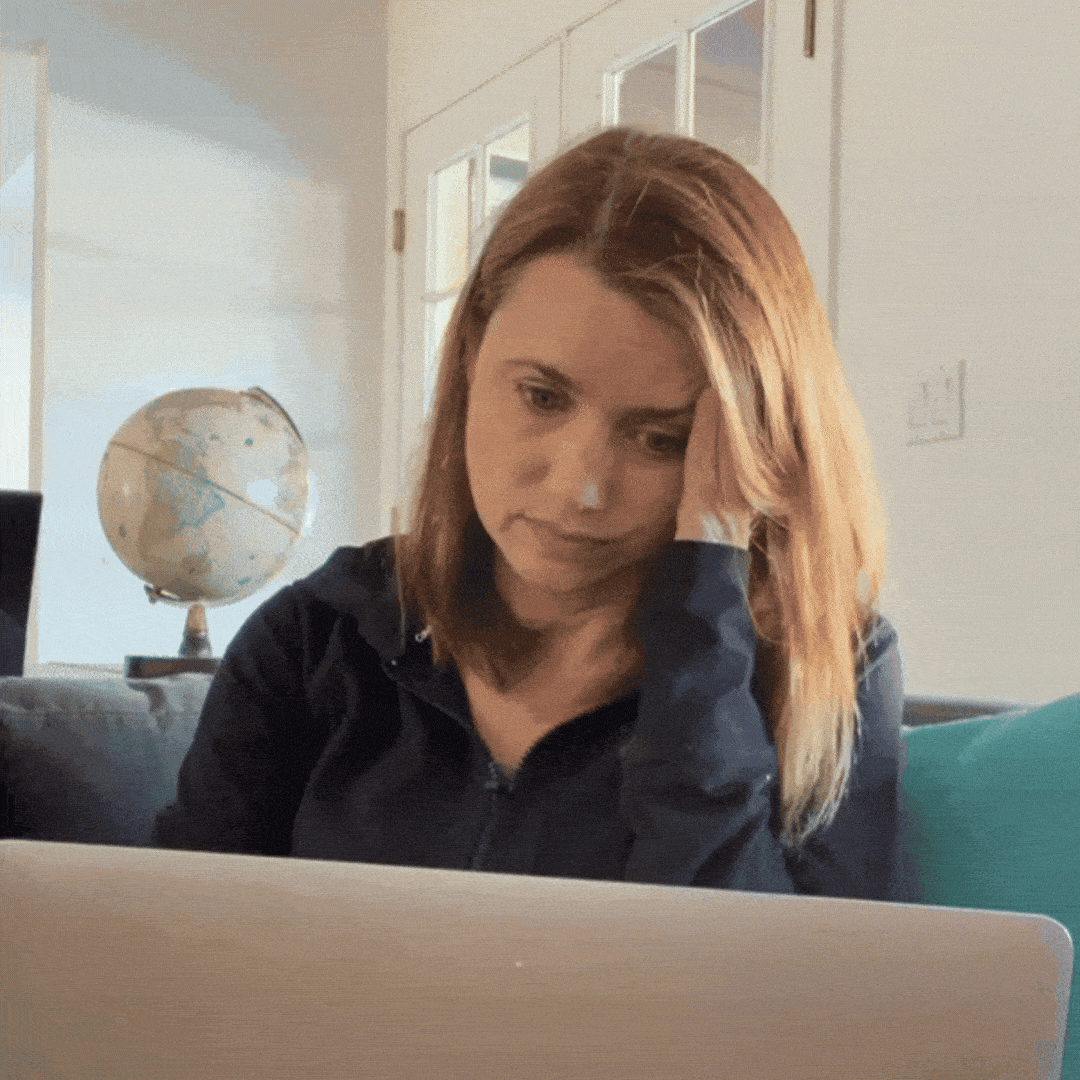Imposter syndrome: 3 ways to move past it so you can write
If you’re stuck staring at the blank page or over-editing everything you write, there’s a good chance imposter syndrome and perfectionism are to blame. I’ve been there and so has almost every writer I know.
For years, finding the time to write was my biggest challenge. That’s still a huge snag, but by getting creative and by making my book a top priority (i.e. disappointing people and dropping balls left and right, sorry guys), I’m making progress. (Lots of tips on how to do that here.) And yet…
The closer I get to the end of my draft, the more I find myself
Staring at a blank page
Avoiding writing altogether (you know things are bad if I’m bleaching grout with a toothbrush)
Second guessing the entire premise
With every blink of that cursor, I imagine my agent and potential publishers taking one look and going…🤮
Worse, on top of feeling like a fraud, I feel like a hypocrite for getting derailed because I KNOW that the secret to any book is a shitty first draft. I teach this stuff! I’m like “get with the program, people. All writers write shitty first drafts, just ask Anne Lamott. Just keep going, rah-rah!”
Wow, that is so much easier said than done…especially when you make your living teaching writing! Talk about pressure.
It is a lot more pleasant to sit here and just imagine how great it could be than to put pen to paper and actually see the lackluster results.
Can you relate? Whether it’s a draft of a manuscript, a proposal, synopses, or a query letter, reality can be deflating.
Luckily, one thing that comes with experience is that I know this is NORMAL. In fact, it’s even a good thing. It means we care. We want to do it right and have no illusions that this is an easy endeavor we can half ass. The people who think everything they do is brilliant are, well, wrong.
I’ve been reminding myself of all my writer friends who periodically feel like total frauds, even if they have New York Times bestsellers or write for places like the Paris Review or The New Yorker.
I also need to remind myself that to do anything worthwhile, we have to be able to feel the discomfort and do it anyway. Again, much easier said than done.
1. Lower your expectations….Even lower….Lower than Anne Lamott’s shitty first draft.
The first draft is so bloody hard. Coming up with something from nothing is a much heavier lift than revising the material you already have on the page. When I imagine a “first draft,” no matter how “shitty,” I still think of something solid and put together, and it can paralyze me. What am I supposed to write now? Is this going to be any good? My agent didn’t like my last book, so maybe I can’t write anymore and this will never go anywhere.
This time, when I found myself frozen in front of the blank page with all of those self-limiting thoughts, I decided to aim for something even worse, what some people call a puke draft, a zero draft, or a prototype. When I sent out a recent newsletter, one of my subscribers said he aims for a “first conglomeration.” Thanks, Roy. I love that.
Whatever you want to call it, it totally worked for me. I have a complete “conglomeration” with some well-written chapters, some shittily written chapters, and some chapters that are barely more than an outline or a grab bag of notes. But I know where I’m going, and overall, I like where I’m going. Most importantly, I’m now rewriting existing material, which is far easier, so my momentum feels unstoppable.
No matter what happens with publication, I an promise you this: I am have the most fun I have EVER had writing anything. It is an absolute ball.
2. Try timed writing sprints on paper or in Compose Mode.
Do you ever try to write but end up erasing and revising and editing the same few sentences over and over? Well, I do. The problem isn’t just that it’s inefficient. The problem is that you’re in editor mode, which is firing up your left brain when you need your right brain for creativity and imagination. (That’s grossly oversimplified, but you get my point.)
To stay out of editor mode and in creator mode, I set a timer and write as fast as I can without deleting, re-reading, or editing. On paper, this means moving my hand non-stop to get something down, no matter how bad. On the computer, Word’s focus mode or Scrivener’s Compose mode are great for removing all distractions. There are also online tools that can help. Just Write won’t allow you to revise or delete, and Ilys only shows you one letter at a time until you’re ready to save.
Whenever I host writing parties in one of my courses, we do timed sprints and my students are always blown away by their progress. They have that conglomeration/puke draft and are able to turn it into something good.
3. To kill perfectionism, use these two magical letters
When you can’t think of the right word or scene or even chapter, type the letters TK. Then keep going rather than editing, researching, or staring at the screen. I picked this up the first week of work as a magazine editor. Total godsend. It’s publishing-speak for To Come and means text will be added later. Instead of TC, it’s TK because those two letters don’t naturally come together in the English language, so a typesetter is unlikely to inadvertently leave them in the final copy. In my first novel, Love Me Anyway, there was only one occurrence of those two letters in 308 pages - Winnetka. Let me rephrase - there was only one occurrence by the time it was ready to publish. While I was working on it, it was riddled with TKs!
Have you ever felt imposter syndrome while writing, creating, or leading? Did you get over it, or did you get stuck? Let me know in the comments.
Keep Reading…







